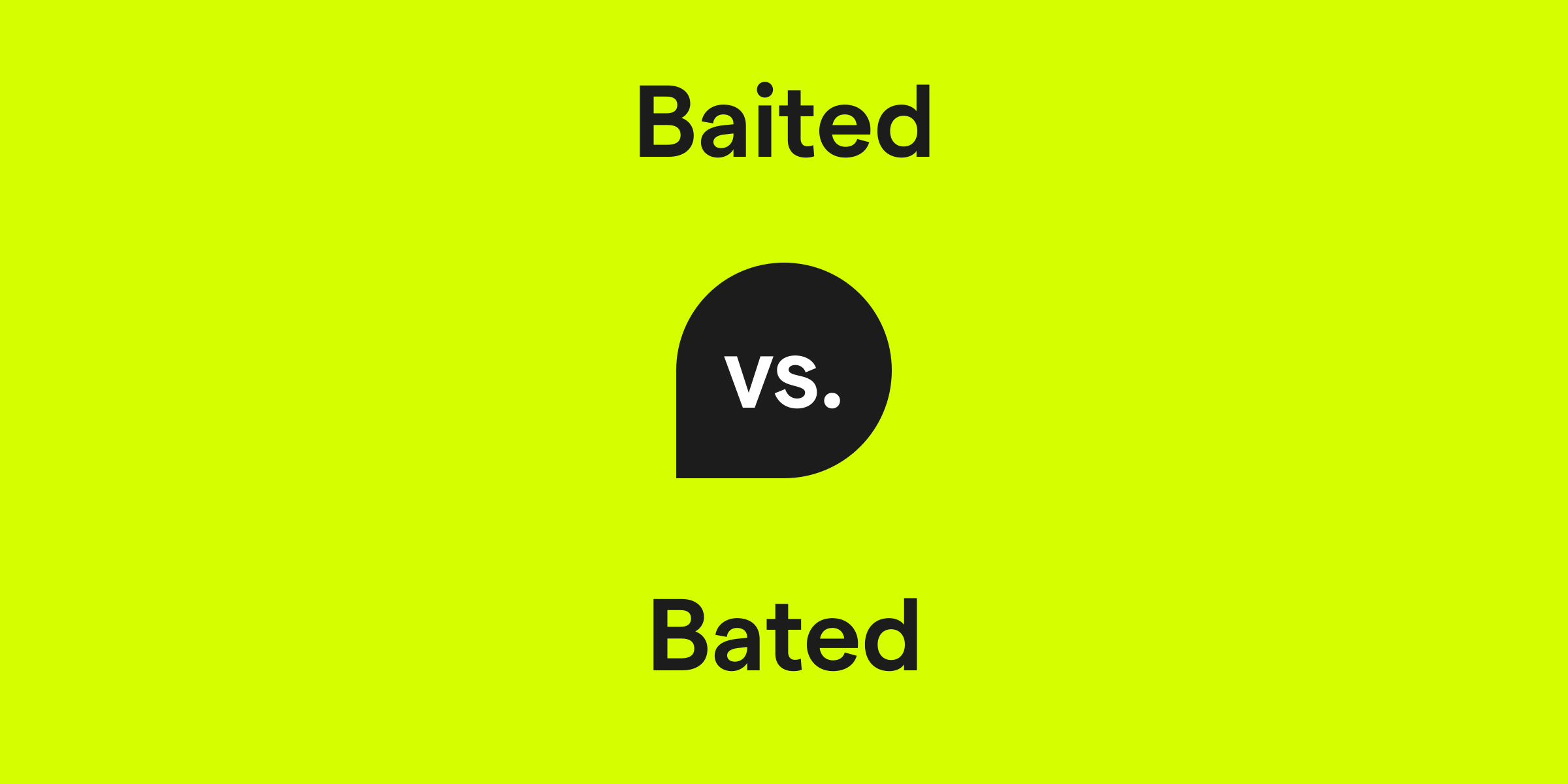Baited vs. Bated: What's the Difference?
The words baited and bated have distinct meanings and usage despite their similar pronunciation. Baited is typically associated with luring or enticing, often used in contexts such as fishing where bait is employed to attract fish. Conversely, bated is related to the state of holding one's breath in anticipation or anxiety and is a shortened form of the archaic word 'abated', meaning 'to lessen or reduce in force or intensity.'

How do you use the word baited in a sentence?
You use the word baited when referring to a situation where something is being used as a lure or temptation. It's often applicable in scenarios involving traps, such as fishing or metaphorically, setting up a situation to get a reaction from someone.
Examples of baited in a sentence
- The fisherman baited his hook with a wriggling worm, hoping to catch a big fish.
- The journalist baited the politician with a provocative question, aiming to elicit a revealing statement.
- Fans baited the rival team with clever chants to disrupt their concentration.
How do you use the word bated in a sentence?
The word bated is used when describing a situation where someone is waiting in great anticipation for something to happen. It often conveys a sense of eagerness mixed with anxiety, tension, or suspense.
Examples of bated in a sentence
- The audience waited with bated breath for the magician to reveal his final trick.
- We listened with bated breath as the judge prepared to announce the verdict.
- As the storm approached, the townspeople watched the darkening skies with bated breath.
Baited and bated definition, parts of speech, and pronunciation
Baited definition:
Baited refers to the act of using a lure or temptation to entice or trap. It's derived from the verb 'to bait,' which means to deliberately annoy or taunt someone or to attach bait to a trap or hook.
Baited parts of speech:
Baited pronunciation:
Baited is pronounced as /ˈbeɪtɪd/, where the 'ai' sounds like the word 'bait' followed by a soft 'id.'
Bated definition:
Bated is an adjective that means to lessen in intensity, hold back, or reduce force. It's most commonly used in the phrase 'with bated breath,' indicating that someone is holding their breath in suspense or anticipation.
Bated parts of speech:
Bated pronunciation:
Bated is pronounced as /ˈbeɪtɪd/, identical to 'baited' and is distinguished only by the context in which it is used.
Baited refers to the act of using a lure or temptation to entice or trap. It's derived from the verb 'to bait,' which means to deliberately annoy or taunt someone or to attach bait to a trap or hook.
Baited parts of speech:
- As an adjective, baited describes something that has been lured or enticed: The baited trap was set for the mouse.
- In its verb form, 'to bait' means to taunt or entice: He baited the animal into the cage with some food.
Baited pronunciation:
Baited is pronounced as /ˈbeɪtɪd/, where the 'ai' sounds like the word 'bait' followed by a soft 'id.'
Bated definition:
Bated is an adjective that means to lessen in intensity, hold back, or reduce force. It's most commonly used in the phrase 'with bated breath,' indicating that someone is holding their breath in suspense or anticipation.
Bated parts of speech:
- As an adjective, bated is primarily used to describe breath: She waited with bated breath for the results.
Bated pronunciation:
Bated is pronounced as /ˈbeɪtɪd/, identical to 'baited' and is distinguished only by the context in which it is used.
Baited vs. bated in a nutshell
Baited and bated sound alike but have distinct usages. Baited is used in contexts of enticement and lure, often in practical or metaphorical trapping scenarios. Bated, on the other hand, is related to the suspense of holding one's breath in anticipation, commonly found in the phrase 'with bated breath.' While both words are homophones, their meanings and applications vastly differ. Remembering their contexts can prevent confusion in both written and spoken English.
Get AI Writing Assistance Wherever You Type
Make sure your vocabulary is on point and every punctuation mark is in the right place, no matter where you’re working. Grammarly works across more than 1 million websites and apps so you can improve your writing without copying, pasting, or breaking focus.

More Commonly Confused Words
Interest piqued? Pore (not pour) over other commonly confused words to help your writing reach peak (not peek) performance.